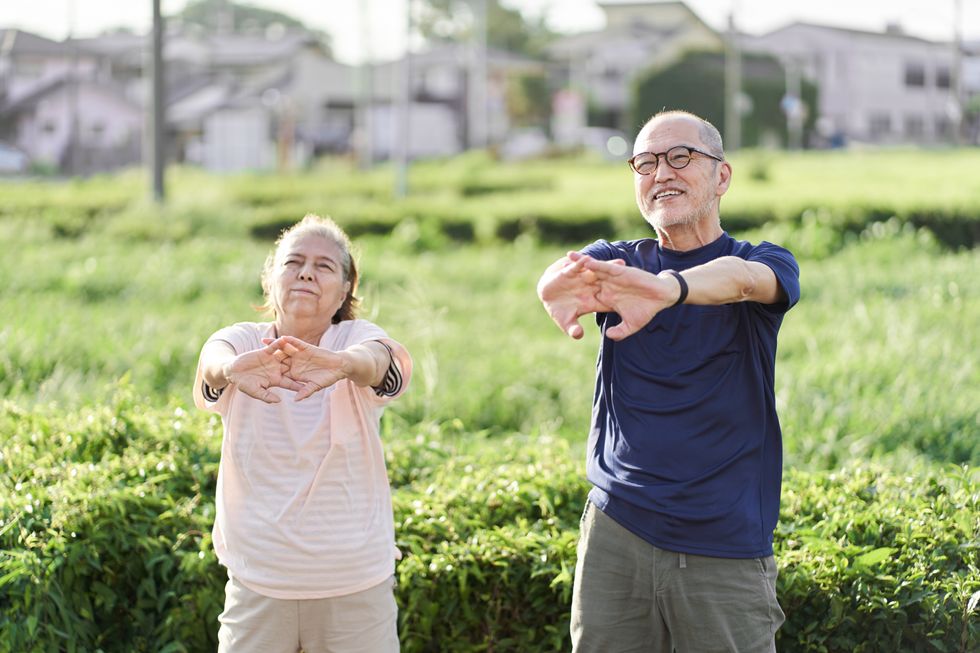Best types of exercise for blood sugar
GB News
Going on a walk after eating can help stabilise blood glucose
Don't Miss
Most Read
Trending on GB News
Those looking to try and reduce their blood sugar levels need to consider what they do after eating.
Speaking to GB News, a pharmacist suggested a habit people should do after finishing their meal.
Abbas Kanani, from Chemist Click, said: "Exercising after a meal can help to lower insulin levels. It helps the body use insulin better by increasing insulin sensitivity. Muscle cells improve and can use any available insulin to take up glucose during and after activity."
Exercise does not need to be severe and can be as simple as walking for 20 minutes. The expert said you should aim for two and a half hours of exercise a week.

Exercising after eating can help reduce blood sugar levels
GETTYAbbas said: "High insulin sensitivity allows the cells of the body to use blood glucose more effectively, reducing blood sugar. Cells can take up glucose and use it for energy whether insulin is available or not when you exercise.
"Keeping active also helps you to achieve and maintain a healthy weight which is important because being overweight is a risk factor for the condition. The likelihood and severity of type 2 diabetes are closely linked with body mass index."
Dinner is typically the heaviest meal of the day, so a post-dinner workout is beneficial for keeping blood sugar levels stabilised.
If a workout is not preferred, a small stroll outside to get the blood pumping can be just as good. Abbas said: "It is a long-term process and exercising can help to control insulin levels over a long time."
Aside from exercise, focus on eating the right foods. The pharmacist said: "Whole grain bread, plain Greek yoghurt and eggs are beneficial for regulating blood sugar levels because they are high in protein."
Protein helps to slow digestion and prevent postmeal blood sugar spikes by slowing the flow of glucose.
For hydration, Abbas said: "It is best to stay away from sweetened drinks for breakfast. Instead, drink herbal teas, unsweetened tea or coffee and water.
"Fruit juices and smoothies are nutritious drinks for breakfast, but diabetics should check whether they contain added sugars before drinking them."
LATEST DEVELOPMENTS

'Exercise helps the body use insulin better by increasing insulin sensitivity'
GETTYPeople should try to avoid skipping meals, as they can have adverse effects on the body.
The expert explained: "Skipping meals can cause changes in blood sugar levels, energy levels and hormonal balance. It can increase blood sugar after both lunch and dinner."
Having foods rich in fibre, such as avocados can help insulin resistance.







